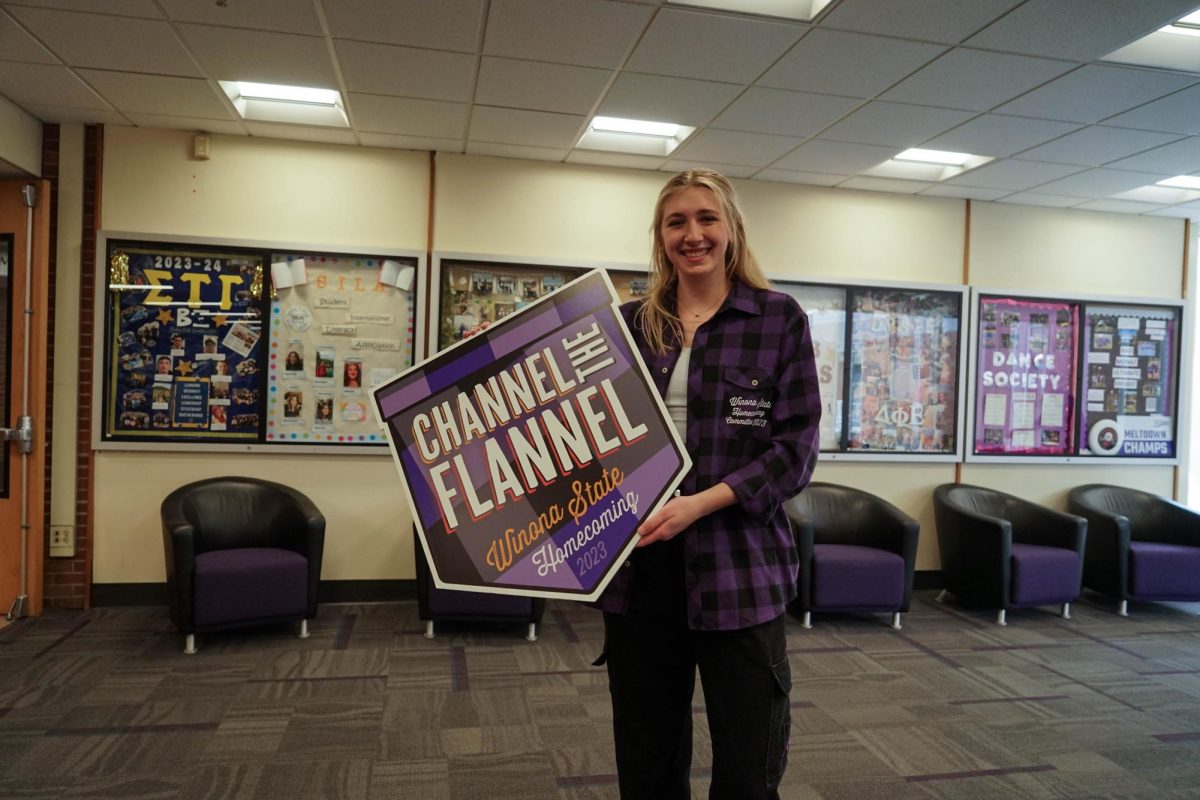Nathaniel Nelson / Winonan
The wifi in Winona State University’s residence halls were upgraded from one gigabyte to 10 gigabytes over the 2016 summer, as part of continuous upgrades by the tech department at Winona State.
Director of Infrastructure at Winona State David Gresham said the upgrades were established as a way to make campus more like home for students.
“It’s just part of the very fiber of students’ being, right? So we want to make sure they’re able to do things beyond just academic work, and be comfortable in their internet access,” Gresham said.
Gresham is the Director of Infrastructure at Winona State. He, along with Chief Network Engineer Micah Droessler, helps manage the internet services across campus, making sure everything runs as smoothly as possible.
The bandwidth upgrade in the residence halls has been a big issue for a few years now. With students being online more frequently, the servers take on an extra load, Gresham said.
This upgrade future-proofs the dorms for a while, with current needs only reaching two and half to three gigabytes.
“Right now we’re pretty confident that the coverage is good, the bandwidth is good, and the speed is good. But if someone can’t do something they enjoy then their overall experience will be diminished,” Gresham said, “At this time, we’re not able to support some things that students want.”
Specifically, there are problems involving game systems and streaming sticks like Chromecast and Roku.
According to Gresham, gaming systems use an alternate authentication process that does not work with the current wireless services. This means the only way to use those would be to hook them up directly to the Ethernet.
As for the streaming sticks, there is a lack of hardwired solutions, which makes connecting difficult, Droessler said.
“The other problem with them is that even when they are working, they’re causing massive interference,” Droessler said, “We’ve gotten very few calls this year on coverage issues, but a lot of them have been interference from Chromecast and Roku boxes.”
Currently, a main goal has also been upgrading the access points across campus to give students the widest range of connectivity. According to Droessler, this will make for less outages as the demand continues to increase.
“It has to be very dynamic, since the industry keeps changing,” Droessler said.
Another problem that arises involves the residence halls; layout, he added.
Wireless can have difficulties getting to certain areas. The old 2.4 ghz system could travel through walls, but was not fast enough for students’ needs. The new 5.0 ghz system is faster but is better at traveling around corners than through walls.
This leads some students being completely unable to connect in certain parts of their room, albeit rarely.
“We have solutions if they call. We’ll do a site survey, and the next step will be to get an access point available for them,” Droessler said.
Over Thanksgiving break, Gresham and Droessler intend to upgrade the equipment university-wide. This will involve increasing the channels and overall speed improvements.
According to Gresham, the team is hoping to start putting access points into the rooms themselves, so these outages and problems just disappear. To do this, they will need to drill into the walls, which is the biggest hurdle for them.
At the moment, Gresham said, a few of the education buildings have been boosted already, and the rollout for the new tech will continue over the next year.
“This isn’t set in stone, but we’ll likely be introducing this technology in the residence halls this summer, so next year students will be able to get the same benefits in the residence halls,” Gresham said.
-By Nathaniel Nelson





























































